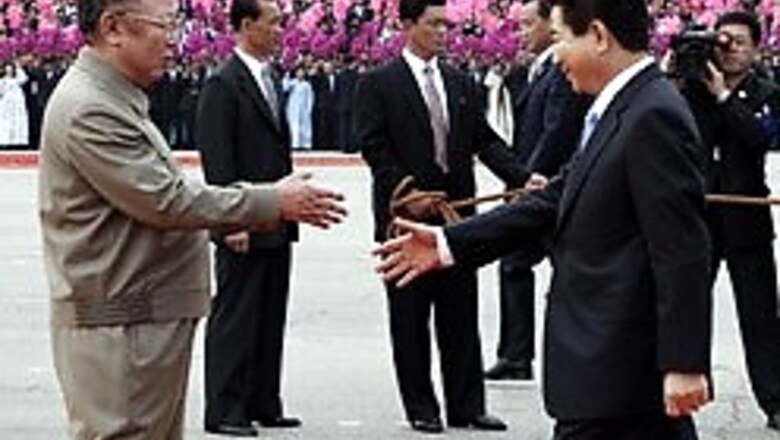
views
Getting around the last remnant of the cold war, and incidentally the symbol of its inception, was always tricky business in the world diplomacy. Since 1966 North Korea had been in a state of military preparedness with its economic plans and indeed entire orientation altered to suit the military requirements.
The problem came to a head in 2002 when the Communist nation under Kim Jong Il acknowledged it was developing nuclear weapons. In 2005 it suspended conciliatory talks and announced to the utter shock of its neighbours that it had stockpiled nuclear weapons. Paradoxically, the same United States, which had dubbed the nation as a component of "the axis of evil" began to take a lead even as most of North Korea's neighbours -- South Korea, Japan and China included -- yearned for a solution.
In early 2007 followed six rounds of Six-Party Talks among North Korea, South Korea, China, Japan, Russia and the United States. The past did not paint a rosy backdrop. Earlier five rounds of such talks had come a cropper. As if it were shape of things to come, this time around too the negotiations got stuck in the middle. With neither side wanting to give up any ground, the US delegation, for one, was ready to call it quits.
The breakthrough came at the last minute, when North Korea agreed to put a lid on its nuclear weapons program in return for easing tensions with the US and economic benefits. Behind the scenes, diplomats like Christopher Hill, a US Assistant Secretary, worked overtime.
While North Korean diplomats insisted aid deliveries be defined clearly, other negotiators demanded that they first discuss the disabling of nuclear programme. North Korea had to agree. "It's one thing to walk away from one party. It's another thing to walk away from all of its neighbours," Hill later reasoned. President Bush summarized it more succinctly: "These talks represent the best opportunity to use diplomacy to address (the problem of) North Korea's nuclear programmes."



















Comments
0 comment